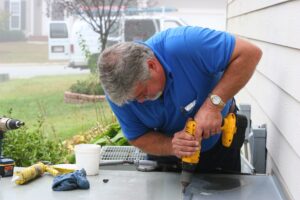
Chances are, you’ve heard that you can improve your home’s efficiency and reduce your energy bills by getting a heat pump. Well, we’re here to confirm that this is true. However, since the average homeowner isn’t an HVAC technician, not everyone who mentions heat pump efficiency can tell you how these systems do what they do. If you’ve ever wondered why your system isn’t switching modes or operating efficiently, it could be worth learning about common heat pump performance issues before calling in a professional.
What Makes a Heat Pump So Efficient When Installed?
Heat pumps are highly efficient because they move heat rather than create it. By transferring thermal energy using electricity, they consume far less energy than systems that burn fuel or rely on electric resistance. Their efficiency is further boosted by advanced features like variable-speed compressors, improved refrigerants, and high-performance coils that reduce power use.
We believe that information is power, and that homeowners who know more about the systems in their homes can make well-informed choices that they’ll be happier with in the long run. So we’d like you to have the details. What exactly makes a heat pump so much more efficient than other systems? Let’s dig into the workings of heat pumps in Toms River, NJ.


